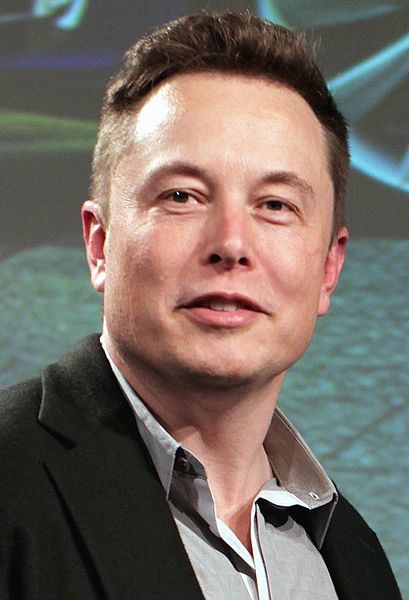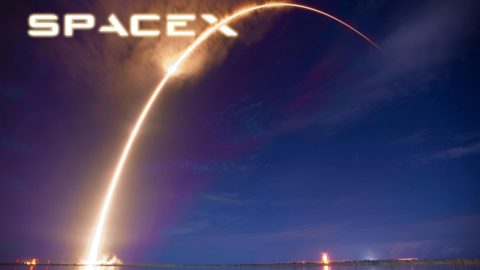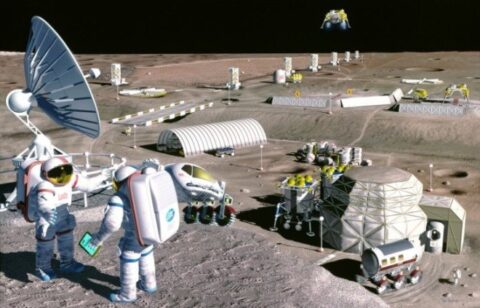Tom Scott
Published 2 Oct 2023The asterisk is important.
■ More on the ELT: @ESOobservatory https://eso.orgThe Extremely Large Telescope, in Paranal, Chile, is probably going to be the largest optical telescope that will ever be constructed. I was invited out there by the UK Science and Technology Facilities Council and the European Southern Observatory, and I wasn’t going to turn down a chance like that.
📰 DISCLAIMER
While the STFC and ESO invited me and arranged the logistics after arrival into the Antofagasta region, I was not paid for this (not even my travel costs) and I have sole editorial control over the video. This is not an advert.
(more…)
January 1, 2024
The largest telescope that will ever be built*
September 24, 2023
Architect Breaks Down Why All American Diners Look Like That | Architectural Digest
Architectural Digest
Published 1 Jun 2023Today Michael Wyetzner of Michielli + Wyetzner Architects returns to Architectural Digest to explore the design evolution of American diners. A cornerstone of American dining culture, their distinctive style has been emulated around the world making them a popular salute to the USA. Michael provides an expert look into the history behind their design evolution from the 1920s through to the 1960s and explains why all diners came to look like that.
(more…)
September 14, 2023
Scott Alexander reviews the (old) Elon Musk biography
It’s okay, he makes it clear from the start that he’s talking about Ashlee Vance’s earlier work, not the one that just hit the shelves this year:
This isn’t the new Musk biography everyone’s talking about. This is the 2015 Musk biography by Ashlee Vance. I started reading it in July, before I knew there was a new one. It’s fine: Musk never changes. He’s always been exactly the same person he is now.1
I read the book to try to figure out who that was. Musk is a paradox. He spearheaded the creation of the world’s most advanced rockets, which suggests that he is smart. He’s the richest man on Earth, which suggests that he makes good business decisions. But we constantly see this smart, good-business-decision-making person make seemingly stupid business decisions. He picks unnecessary fights with regulators. Files junk lawsuits he can’t possibly win. Abuses indispensable employees. Renames one of the most recognizable brands ever.
Musk creates cognitive dissonance: how can someone be so smart and so dumb at the same time? To reduce the dissonance, people have spawned a whole industry of Musk-bashing, trying to explain away each of his accomplishments: Peter Thiel gets all the credit for PayPal, Martin Eberhard gets all the credit for Tesla, NASA cash keeps SpaceX afloat, something something blood emeralds. Others try to come up with reasons he’s wholly smart – a 4D chessmaster whose apparent drunken stumbles lead inexorably to victory.
Elon Musk: Tesla, SpaceX, And The Quest For A Fantastic Future delights in its refusal to resolve the dissonance. Musk has always been exactly the same person he is now, and exactly what he looks like. He is without deception, without subtlety, without unexpected depths.
The main answer to the paradox of “how does he succeed while making so many bad decisions?” is that he’s the most focused person in the world. When he decides to do something, he comes up with an absurdly optimistic timeline for how quickly it can happen if everything goes as well as the laws of physics allow. He – I think the book provides ample evidence for this – genuinely believes this timeline,2 or at least half-believingly wills for it to be true. Then, when things go less quickly than that, it’s like red-hot knives stabbing his brain. He gets obsessed, screams at everyone involved, puts in twenty hour days for months on end trying to try to get the project “back on track”. He comes up with absurd shortcuts nobody else would ever consider, trying to win back a few days or weeks. If a specific person stands in his way, he fires that person (if they are an employee), unleashes nonstop verbal abuse on them3 (if they will listen) or sues them (if they’re anyone else). The end result never quite reaches the original goal, but still happens faster than anyone except Elon thought possible. A Tesla employee described his style as demanding a car go from LA to NYC on a single charge, which is impossible, but he puts in such a strong effort that the car makes it to New Mexico.
This is the Musk Strategy For Business Success; the rest is just commentary.
1. Vance starts with the story of the biography itself. When Musk learned he was being profiled, he called Vance, threatened that he could “make [his] life very difficult”, and demanded the right to include footnotes wherever he wanted telling his side of the story. When Vance said that wasn’t how things worked, Elon invited him to dinner to talk about it. Elon arrived late, and spent the first few courses talking about the risk of artificial superintelligence. When Vance tried to redirect the conversation to the biography, Elon abruptly agreed, gave him unprecedented access to everyone, and won him over so thoroughly that the book ends with a prediction that Musk will succeed at everything and become the richest man in the world (a bold claim back in 2015).
I like this story but find myself dwelling on Musk’s request — why shouldn’t he be allowed to read his own biography before publication and include footnotes giving his side of the story where he disagrees? That sounds like it should be standard practice! If I ever write a post about any of you and you disagree with it, feel free to ask me to add a footnote giving your side of the story (or realistically I’ll put it in an Open Thread).
2. The book gives several examples of times Musk almost went bankrupt by underestimating how long a project would take, then got saved by an amazing stroke of luck at the last second. When Vance asked him about his original plan to get the Falcon 1 done in a year, he said:
“Reminded about the initial 2003 target date to fly the Falcon 1, Musk acted shocked. ‘Are you serious?’ he said. ‘We said that? Okay, that’s ridiculous. I think I just didn’t know what the hell I was talking about. The only thing I had prior experience in was software, and, yeah, you can write a bunch of software and launch a website in a year. No problem. This isn’t like software. It doesn’t work that way with rockets.”
But also, the employees who Vance interviewed admit that whenever Musk asks how long something will take, they give him a super-optimistic timeline, because otherwise he will yell at them.
3. I wondered whether Elon was self-aware. The answer seems to be yes. Here’s an email he wrote a friend:
“I am by nature obsessive compulsive. In terms of being an asshole or screwing up, I’m personally as guilty of that as anyone, and am somewhat thick-skinned in this regard due to large amounts of scar tissue. What matters to me is winning, and not in a small way. God knows why … it’s probably [rooted] in some very disturbing psychoanalytical black hole or neural short circuit.”
September 11, 2023
The DOJ versus SpaceX
I was a bit boggled when the US Justice Department announced it was going after Elon Musk’s SpaceX for alleged discriminatory hiring practices:
The Justice Department recently filed a lawsuit against SpaceX, the California-based spacecraft manufacturer and satellite communications company founded by Elon Musk.
In its lawsuit, the DOJ accused SpaceX of only hiring U.S. citizens and green-card holders, thereby discriminating against asylees and refugees in hiring, an alleged violation of the Immigration and Nationality Act.
Musk denied the allegations and accused the government of weaponizing “the DOJ for political purposes”.
“SpaceX was told repeatedly that hiring anyone who was not a permanent resident of the United States would violate international arms trafficking law, which would be a criminal offense,” Musk wrote on X, formerly known as Twitter.
It’s uncertain if the DOJ is actually targeting SpaceX (more on that in a minute), but George Mason University economist Alex Tabarrok quickly found a problem with the DOJ’s allegations.
“Do you know who else advertises that only US citizens can apply for a job?” Tabarrok asked. “The DOJ.”
Tabarrok even brought the receipts: a screenshot of the DOJ job website that explicitly states, “U.S. Citizenship is Required.”
So, if Musk is discriminating against non-U.S. citizens in his hiring practices, so is the DOJ.
This makes the lawsuit prima facie absurd on one level. However, one could also argue that there could be good reasons to discriminate in hiring. And as is usually the case, for better or worse, the government gets to decide when it’s OK to discriminate and when it’s not OK.
And that’s where things get hazy.
Musk and others claim that companies such as SpaceX are legally required to hire U.S. citizens because of International Traffic in Arms Regulations, a federal regulatory framework designed to safeguard military-related technologies.
The DOJ disagrees. So who is right? It’s difficult to say, Tabarrok pointed out.
“The distinction, as I understand it, rests on the difference between US Persons and US Citizens,” he wrote on Marginal Revolution, “but [SpaceX is] 100% correct that the DoD frowns on non-citizens working for military related ventures.”
In other words, SpaceX appears to have been trying to comply with Department of Defense regulations by not using non-citizens in military-related work, and in doing so, it may have run afoul of the DOJ.
June 24, 2023
The Most Reliable and Versatile Sub-orbital Rockets Ever Made; the Black Brant Sounding Rockets
Polyus
Published 31 Aug 2018The Black Brant series of sounding rockets was a great success and a proud contribution to the global race for space. While not as glamorous as an orbital rocket, the Black Brants helped scientists from around the globe research and better understand the Aurora and the Earth’s ionosphere.
(more…)
June 21, 2023
Was Starship’s Stage Zero a Bad Pad?
Practical Engineering
Published 20 Jun 2023Launchpads are incredible feats of engineering. Let’s cover some of the basics!
Unlike NASA, which spends years in planning and engineering, SpaceX uses rapid development cycles and full-scale tests to work toward its eventual goals. They push their hardware to the limit to learn as much as possible, and we get to follow along. They’re betting it will pay off to develop fast instead of carefully. This video compares the Stage 0 launch pad to the historic pad 39A.
(more…)
June 18, 2023
Don’t Drop your Tools in Space
Real Engineering
Published 11 Mar 2023
(more…)
May 28, 2023
This Gun Could Reach Space
Real Engineering
Published 18 Feb 2023
(more…)
March 15, 2023
Mining the moon would be “harmful” to indigenous people, say activists
Among the many, many things that are said to be harmful to indigenous culture we’re now told to include any kind of Lunar exploitation as modern colonialism:
Humans have boldly ventured beyond the Earth into space for more than half a century now. It’s a testament to the ambition of the modern world.
And today, humanity is still more ambitious. A new space race is underway between the US and China to mine the Moon for rare metals. NASA is even hoping to establish a long-term presence on the Moon and eventually send humans to Mars.
But it seems that some scientists-cum-activists, in hock to identity politics, want to rein in that ambition. Speaking ahead of a US conference on the ethics of space exploration, held by the American Association for the Advancement of Science (AAAS) last week, astrobiologist Dr Pamela Conrad told the Guardian that space exploration, particularly efforts to mine the Moon, is in danger of becoming an exercise in “colonialism” and “exploitation”. Conrad warned that “if something that’s not here [on Earth] is seen as a resource, just ripe to be exploited, then that [perpetuates] colonialism”.
Conrad’s fellow panellist at the conference, Dr Hilding Neilson, went even further. According to Neilson, a member of the Native American Mi’kmaq people, indigenous people have a deep connection with celestial bodies like the Moon. They therefore have a more profound and, by implication, superior “way of knowing” the Moon compared with those advocating space exploration. The latter merely see the Moon “as a dead object to be conquered”, Neilson says – meaning that those advocating space exploration are “essentially cheering on the history of colonialism”.
There are so many problems with this argument it’s difficult to know where to start. Both Conrad and Neilson appear to be using the specific and brutal practice of “colonialism” to describe – and demonise – humanity’s attempt to master nature in general. That’s a flawed enough approach to take to the history of our growing mastery of nature on Earth. But it’s even more flawed in the context of space.
After all, there’s one big difference between laying claim to the resources of other countries under colonialism and attempting to mine the Moon – nobody lives on the Moon! So no one would be “exploited” or “colonised” if humans were to mine it. Space exploration is therefore not the same as colonialism.
January 15, 2023
QotD: The uncertain “certainties” of war in space
The comments for that post were very active with suggestions for technological or strategic situations which would or would not make orbit-to-land operations (read: planetary invasions) unnecessary or obsolete, which were all quite interesting.
What I found most striking though was a relative confidence in how space battles would be waged in general, which I’ve seen both a little bit here in the comments and frequently more broadly in the hard-sci-fi community. The assumptions run very roughly that, without some form of magic-tech (like shields), space battles would be fought at extreme range, with devastating hyper-accurate weapons against which there could be no real defense, leading to relatively “thin-skinned” spacecraft. Evasion is typically dismissed as a possibility and with it smaller craft (like fighters) with potentially more favorable thrust-to-mass ratios. It’s actually handy for encapsulating this view of space combat that The Expanse essentially reproduces this model.
And, to be clear, I am not suggesting that this vision of future combat is wrong in any particular way. It may be right! But I find the relative confidence with which this model is often offered as more than a little bit misleading. The problem isn’t the model; it’s the false certainty with which it gets presented.
[…]
Coming back around to spaceships: if multiple national navies stocked with dozens of experts with decades of experience and training aren’t fully confident they know what a naval war in 2035 will look like, I find myself with sincere doubts that science fiction writers who are at best amateur engineers and military theorists have a good sense of what warfare in 2350 (much less the Grim Darkness of the Future Where There is Only War) will look like. This isn’t to trash on any given science fiction property mind you. At best, what someone right now can do is essentially game out, flow-chart style, probable fighting systems based on plausible technological systems, understanding that even small changes can radically change the picture. For just one example, consider the question “at what range can one space warship resolve an accurate target solution against another with the stealth systems and electronics warfare available?” Different answers to that question, predicated on different sensor, weapons and electronics warfare capabilities produce wildly different combat systems.
(As an aside: I am sure someone is already dashing down in the comments preparing to write “there is no stealth in space“. To a degree, that is true – the kind of Star Trek-esque cloaking device of complete invisibility is impossible in space, because a ship’s waste heat has to go somewhere and that is going to make the craft detectable. But detectable and detected are not the same: the sky is big, there are lots of sources of electromagnetic radiation in it. There are as yet undiscovered large asteroids in the solar-system; the idea of a ship designed to radiate waste heat away from enemies and pretend to be one more undocumented large rock (or escape notice entirely, since an enemy may not be able to track everything in the sky) long enough to escape detection or close to ideal range doesn’t seem outlandish to me. Likewise, once detected, the idea of a ship using something like chaff to introduce just enough noise into an opponent’s targeting system so that they can’t determine velocity and heading with enough precision to put a hit on target at 100,000 miles away doesn’t seem insane either. Or none of that might work, leading to extreme-range exchanges. Again, the question is all about the interaction of detection, targeting and counter-measure technology, which we can’t really predict at all.)
And that uncertainty attaches to almost every sort of technological interaction. Sensors and targeting against electronics warfare and stealth, but also missiles and projectiles against point-defense and CIWS, or any kind of weapon against armor (there is often an assumption, for instance, that armor is entirely useless against nuclear strikes, which is not the case) and on and on. Layered on top of that is what future technologies will even prove practical – if heat dissipation problems for lasers or capacitor limitations on railguns be solved problems, for instance. If we can’t quite be sure how known technologies will interact in an environment (our own planet’s seas) that we are intimately familiar with, we should be careful expressing confidence about how future technology will work in space. Consequently, while a science fiction setting can certainly generate a plausible model of future space combat, I think the certainty with which those models and their assumptions are sometimes presented is misplaced.
Bret Devereaux, “Fireside Friday: August 14th, 2020”, A Collection of Unmitigated Pedantry, 2020-08-14.
December 16, 2022
QotD: Little-known types of eclipse
A lunar eclipse occurs when the Earth gets between the Moon and the Sun.
A solar eclipse occurs when the Moon gets between the Earth and the Sun.
A terrestrial eclipse occurs when the Earth gets between you and the Sun. Happens once per 24 hours.
An atmospheric eclipse occurs when an asteroid gets between you and the sky. Generally fatal.
A reverse solar eclipse occurs when the Sun gets between the Moon and the Earth. Extremely fatal.
A motivational eclipse occurs when the Moon gets between you and your goals. You can’t let it stop you! Destroy it! Destroy the Moon!
A marital eclipse occurs when the Moon gets between you and your spouse. You’re going to need to practice good communication about the new celestial body in your life if you want your relationship to survive.
A capillary eclipse occurs when your hair gets between your eyes and the Sun. Get a haircut.
A lexicographic eclipse occurs when “Moon” gets between “Earth” and “Sun” in the dictionary. All Anglophone countries are in perpetual lexicographic eclipse.
A filioque eclipse occurs when the Holy Spirit gets between the Father and the Son.
An apoc eclipse occurs when the Great Beast 666, with seven heads and ten horns, and upon the horns ten crowns, and upon its heads the name of blasphemy, gets between the Earth and the Sun. Extremely fatal.
Scott Alexander, “Little Known Types of Eclipse”, Slate Star Codex, 2019-05-02.
August 1, 2022
QotD: Fermi’s Paradox and the Great Filter(s)
Though what he really said is open to doubt, the nuclear physicist Enrico Fermi gave his name to a short and possibly final argument against the existence of intelligent life on other planets. There are 200 billion stars in our galaxy alone. 20 billion of these are like our own sun. Let us assume that one in five of these has planets – and we find new exoplanets every year – and let us assume that one in a hundred of these one in five has one planet with liquid water: that gives us 40 million Earth-like planets. I will not carry on with the assumptions, but it seems reasonable that there should be around a hundred thousand other advanced civilisations in our galaxy alone.
This being so, the “Fermi Paradox” asks, where are they? So many other civilisations – so many of them presumably older and more advanced than our own – and they have not visited us. Nor, after generations of scanning with radio telescopes, have we detected any unambiguous signals from them. Either intelligent life on other planets does not exist, or it is so rare and so far apart in time or distance or both, that we shall never find it.
Writing in 2008, Nick Bostrom of Oxford University takes the argument to conclusions that are either depressing or exhilarating. He proposes a set of Great Filters, each of which limits the emergence of intelligent and technologically-advanced life. The most obvious filters are in the past. We shall soon be able to estimate how many planets in our galaxy have liquid water. We still have do not know how life begins. Obviously, it began here. But we have never been able to create a self-replicating organic process in our laboratories. It may be very unusual. It may also be very unusual, once begun, for this process to evolve beyond the very simple. Then it may be very unusual for larger and more complex living structures to evolve, and hardest of all for anything to emerge with the right combination of mind and appendages to enable the birth of a technological civilisation.
Or the Great Filter may be in the future. It may be that civilisations like our own are reasonably common – but that they invariably blow themselves up shortly after finding how to split the atom.
Bostrop’s conclusion is to hope that, when we get there, we shall find that Mars is, and always has been, a sterile rock. Independent life of any kind on a neighbouring planet would suggest a universe teeming with life, and some probability of civilisations like our own. This being so, the lack of contact would put his Great Filter in the future, and would suggest that we are, on the balance of probabilities, heading for self-extinction. No life at all on Mars, now or in the past, would let him keep hoping that the Great Filter is in the past, and that we may have a splendid progress before us.
Sean Gabb, “Do Flying Saucers Exist?”, Sean Gabb, 2020-11-15.
June 27, 2022
High Altitude Research Project and the Martlet Launch Vehicles; Gerald Bull’s dream of a space gun
Polyus Studios
Published 26 Jun 2022Support me on Patreon – https://www.patreon.com/polyusstudios
In 1968, 7 countries were operating satellites in orbit, while only 3 countries had the ability to launch one themselves. But they were on the verge of being joined by a Canadian university. Starting in the early 1960s, Montreal, Quebec based McGill University developed and began testing an ambitious concept to place small satellites into orbit. It was the culmination of decades of pioneering work across multiple fields. It was the High Altitude Research Project and the Martlet orbital launch vehicle.
Music:
Denmark – Portland Cello Project
Your Suggestions – Unicorn HeadsChapters:
0:00 Introduction
0:28 Bull’s early career
3:00 Birth of the Program
7:47 Getting HARP off the ground
10:52 Martlet 1
13:26 Early Martlet 2
15:41 Martlet 3
18:05 Enhanced Martlet 2s
21:40 Other HARP Guns
24:19 Quest for an Orbital Capability, the 2G-1
27:53 Satellite Delivery Model, Martlet 4
30:27 Advanced gun research
31:30 Hard times for HARP
32:30 Bull’s Ambition Gets The Best Of Him
35:28 Legacy of the HARP Project
February 14, 2022
Why SpaceX Cares About Dirt
Practical Engineering
Published 2 Nov 2021Why do structures big and small sink into the ground, and what can we do to stop it?
Before the so-called Starbase supported crazy test launches of the Starship spaceflight program, it was just a pile of dirt. After nearly two years, they hauled most of that soil back off the site for disposal. It might seem like a curious way to start a construction project, but foundations are critically important. Building that giant dirt pile was a clever way to prevent these facilities from sinking into the ground over time.
Practical Engineering is a YouTube channel about infrastructure and the human-made world around us. It is hosted, written, and produced by Grady Hillhouse. We have new videos posted regularly, so please subscribe for updates. If you enjoyed the video, hit that ‘like’ button, give us a comment, or watch another of our videos!
CONNECT WITH ME
____________________________________
Website: http://practical.engineering
Twitter: https://twitter.com/HillhouseGrady
Instagram: https://www.instagram.com/practicalen…
Reddit: https://www.reddit.com/r/PracticalEng…
Patreon: http://patreon.com/PracticalEngineeringSPONSORSHIP INQUIRIES
____________________________________
Please email my agent at practicalengineering@standard.tvDISCLAIMER
____________________________________
This is not engineering advice. Everything here is for informational and entertainment purposes only. Contact an engineer licensed to practice in your area if you need professional advice or services. All non-licensed clips used for fair use commentary, criticism, and educational purposes.SPECIAL THANKS
____________________________________
This video is sponsored by Morning Brew.
Stock video and imagery provided by Getty Images, Shutterstock, and Videoblocks.
Tonic and Energy by Elexive is licensed under a Creative Commons Attribution License
Source: https://www.youtube.com/watch?v=U6fBP…
Producer/Writer/Host: Grady Hillhouse
Assistant Producer: Wesley Crump
November 5, 2021
The New York Times identifies the next big threat to humanity – “Muskism”
In Thursday’s NP Platformed newsletter, Colby Cosh outlines the “evidence” amassed in a recent New York Times essay blaming Elon Musk for, well, everything:
Lepore commences by describing Bill Gates’s 66th birthday party, for which a bunch of rich people — including Amazon’s Jeff Bezos — were helicoptered to a private beach from a nearby yacht. Neither Elon Musk, thought to be the world’s richest person, or Mark Zuckerberg, founder of newly rebranded Facebook, were present at the party. Zuckerberg was busy illuminating plans for his “metaverse”, which Lepore describes as “a virtual reality,” wherein you wear “a headset and gear that closes out the actual world.”
Here’s where Lepore goes from this: “The metaverse is at once an illustration of and a distraction from a broader and more troubling turn in the history of capitalism. The world’s techno-billionaires are forging a new kind of capitalism: Muskism.”
In literally the next sentence, Lepore admits that the subject of her essay, Elon Musk, immediately and publicly made fun of the Facebook “metaverse” plans. We are on the third paragraph of the essay, and Lepore has already: a) blamed Elon Musk for an A-hole billionaire party he didn’t attend, because he was busy with his engineering and manufacturing projects; and b) applied the new coinage “Muskism” to a virtual reality project that actual Musk loudly criticized. Somehow this essay has severed its own hydrocephalic head twice over, within 500 words.
It gets worse from there as Lepore attempts to complete her mission of denouncing Muskism, which she describes as an “extreme extraterrestrial capitalism.” She quickly has to admit that Bill Gates, who is mostly spending a computing fortune on global philanthropy these days when he’s not lifting off from yachts in choppers, doesn’t have one single freaking thing to do with absolutely any of this. NP Platformed was an editor back in the day, so we notice that the intro of Lepore’s essay is at this point not only detached from its body, but has been left to rot several miles away. Gates-Musk-Bezos-Zuckerberg: they’re all tentacles of the same menacing Muskist octopus here, as in so much newspaper and magazine commentary, and abuse flung in their general direction will suffice to condemn all.
Lepore’s accusation against Musk turns out to be … that he likes some classic science fiction but doesn’t always concur with the politics of its authors. Musk has called himself a “utopian anarchist of the kind best described by Iain Banks,” but Banks was “an avowed socialist.” Gasp! Banks (1954-2013), the Scottish science fiction author best known for the Culture series, was a particular kind of U.K. “libertarian socialist” who believed strongly in spacefaring as a step toward post-scarcity life for sentient beings. His politics are easily misunderstood by Americans, who don’t have this particular kind of weirdo, and the interstellar “Culture” he envisioned was never intended to be admired unironically. In other words, that part of Lepore’s essay is as mangled and obtuse as the rest.








